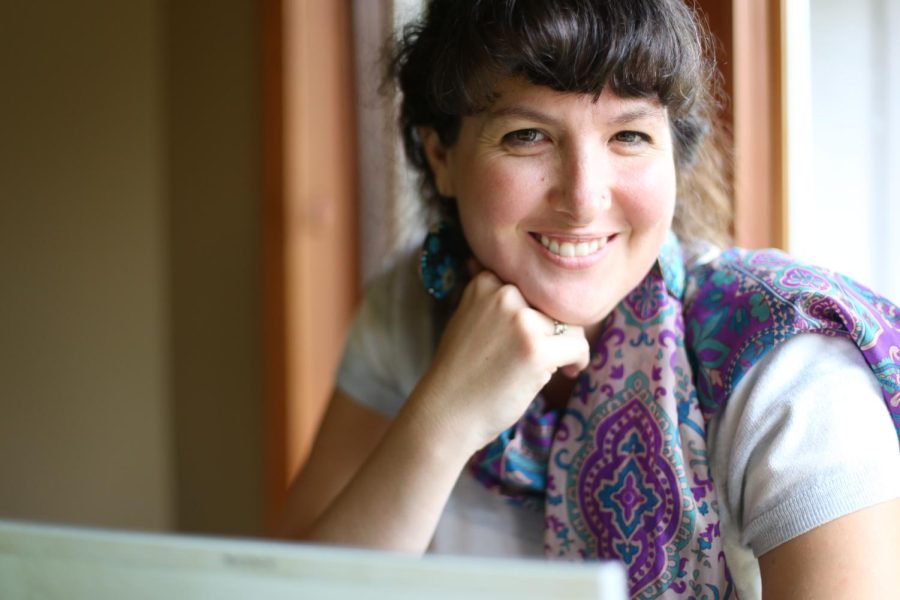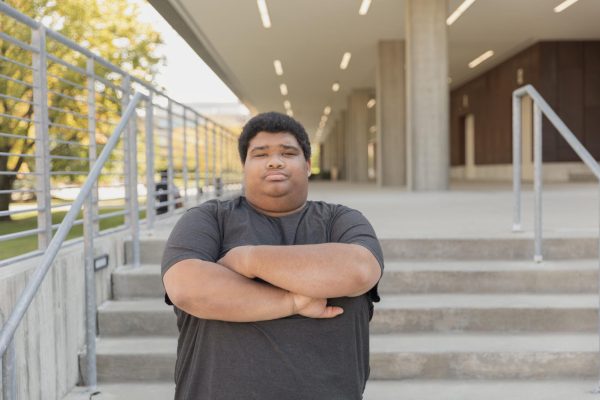Letter to the editor: In support of the Affordable Course Materials Initiative
Professor Kate Roff.
To the Oakland University Community,
Returning to teach in-person has been, for both my students and myself, an enormous exercise in trust. Trust that others will get COVID tested when they need to, trust that peers will stay home when they are ill, trust that students won’t abuse a relaxed absentee grade (they haven’t, just for the record, attendance has been excellent). Building that trust back up after more than a year of societal upheaval is crucial to our progress as a campus community.
Now, with the OU Student Congress urging the OU administration to invest in the Affordable Course Materials Initiative (ACMI) and work to implement Inclusive Access by investing $250,000 in cost-reducing programs, we have an opportunity to further that trust.
I was fortunate to engage with the ACMI last year to re-develop an Intro to Journalism and News Writing course, so that it didn’t require purchased textbooks, instead using Open Education Resources (OER) and content available online. There were some unexpected benefits. My classes became more inclusive — the 12% of my class who previously said they couldn’t afford textbooks weren’t disadvantaged. My content — mostly digital — continued to be relevant and topical, and accessible on almost all devices, allowing students to do their required readings in transit, during lunch breaks, and remotely. It made the mad scramble to access textbooks during COVID-related delays a non-issue for my students. In the fall of 2020 it saved my students $4200 dollars in textbook costs (across my three JRN2000 classes). If implemented across my whole department, this framework has the potential to impact the (up to) 100 students who regularly take JRN2000, reducing their collective costs by up to $10,500 each semester.
Can no-cost or low-cost options work for all OU courses? Probably not. But they can make a huge difference in many of them. Does it disadvantage academic researchers publishing texts? Not if they look to release content on OER platforms.
However, I wouldn’t have been able to dedicate the time to develop such courses without the encouragement, resources, and financial stipend provided by the ACMI to do so. OU faculty work hard to provide high-quality programs, and to rework a course using OER takes dedication and valuable time. It’s worth it, though.
OUSC’s recent petition demonstrates the interest in this initiative, and the impact students feel when it comes to textbook fees. The ACMI offers a chance for the administration and faculty to show that we hear our students, we “get them”, they can trust we have their best interests at heart, and we are willing to put funding, time, and effort into our courses to better meet them where they are at. I trust that we, as a campus community, will make good choices for our students here and make the most of the opportunity to show leadership in this inclusive and rapidly growing practice.
Sincerely,
Kate Roff
Special Lecturer
Department of Communication, Journalism, and Public Relations
Letters to the editor can be submitted to [email protected].







Jeremy Johnson • Nov 30, 2021 at 11:47 AM
The ACMI program is very important for making OU more inclusive and affordable, it’s a necessary investment that OU has the money to make. We greatly appreciate the support!
Sign the petition: http://www.change.org/OUTrashTheTextbooks